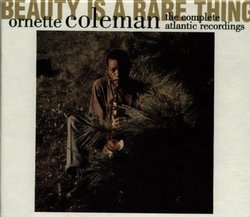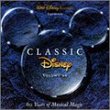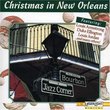| All Artists: Ornette Coleman Title: Beauty Is A Rare Thing: The Complete Atlantic Recordings Members Wishing: 2 Total Copies: 0 Label: Atlantic / Wea Original Release Date: 11/16/1993 Release Date: 11/16/1993 Album Type: Box set Genres: Jazz, Pop Style: Avant Garde & Free Jazz Number of Discs: 6 SwapaCD Credits: 6 UPCs: 081227141028, 081227141066, 008122714102 |
Search - Ornette Coleman :: Beauty Is A Rare Thing: The Complete Atlantic Recordings
 | Ornette Coleman Beauty Is A Rare Thing: The Complete Atlantic Recordings Genres: Jazz, Pop The opportunity to possess--in one convenient package--every recording Ornette Coleman made for Atlantic is an opportunity most fans of modern jazz would be hard pressed to turn down. (It must be noted, however, that many ... more » |
Larger Image |
CD DetailsSynopsis
Amazon.com essential recording The opportunity to possess--in one convenient package--every recording Ornette Coleman made for Atlantic is an opportunity most fans of modern jazz would be hard pressed to turn down. (It must be noted, however, that many jazz fans would have a very easy time turning down anything Ornette recorded, thank you very much). But for Coleman fans, this collection is an embarrassment of riches. Arranged chronologically by recording date, the set collects music from 1959 to 1961, the period many consider Ornette's most vital. Included are sessions from Free Jazz, Ornette!, The Shape of Jazz to Come, Twins, The Art of the Improvisers, Change of the Century, To Whom Who Keeps a Record, and This Is Our Music. As a bonus, producers have also included a handful of previously unreleased tracks. Packaged with gorgeous photos, terrific liner notes from Robert Palmer, as well as copious discographic information, Beauty is a terrific package. As for the music, the recordings are clean, with excellent stereo separation (usually featuring Ornette in one channel and pocket trumpeter Don Cherry in another). But what really sets this collection apart is how clearly the spirit of the music is visible. Beauty bristles with that coiled, edge-of-the-chair excitement that Ornette could so easily summon, capture, and manipulate. And while Coleman's horn playing here is genuinely pulse-quickening and vital, what also emerges from this set is the strength of his band. While Ornette was tensed and ready to pounce, the more esoteric Cherry was able to float and drift with the currents of music's emotion. Behind them, bassist Charlie Haden and drummer Ed Blackwell could roar like an open-throttle race car or purr like an idling sedan. But no matter what speed, this is music that gives the listener the impression it is going somewhere. And, of course, for Ornette Coleman, the destination isn't the point, it's the journey. S. Duda Similar CDs
Similarly Requested CDs
|
CD ReviewsGroundbreaking and essential listening. Michael Stack | North Chelmsford, MA USA | 09/01/2005 (5 out of 5 stars) "Ornette Coleman's arrival in New York in 1959 signalled a change in the jazz world, a change whose rippling effects are still felt to this day. His legendary residency at the Five Spot club and his recordings with Atlantic Records polarized the jazz community at large-- some heralded him as the next logical step from the innovations of Parker and Gillespie, some heralded him as an upstart with no real theory behind him and no mastery of his instrument. One thing is certain, Coleman's music has had long-lasting effects, and his influence can be heard throughout jazz with musicians as diverse as Herbie Hancock, Pat Metheny, John Zorn and Branford Marsalis all citing Coleman as an influence. During these first years in New York, Coleman was signed to Atlantic Records, where he released six groundbreaking albums and had enough leftover material for three further albums and half a dozen further tracks. Such prolificness he'd never repeat in his career-- indeed the two and a half years he spent on Atlantic accounts for about a third of his released studio recordings. All of this material is collected here as "Beauty is a Rare Thing". The music of Ornette coleman is actually much easier to digest than most people would give it credit-- loosely stated, the critical part of his music is that the soloist determines the direction of the piece, not chord changes or some other limitation. The rest-- the odd harmonies, the intentional off key playing, etc., are all less essential. If this idea of spontaneous structure is something you can accept, you'll likely be able to enjoy Coleman's music. The records on here include several of his classics-- the six studio albums released during his tenure on Atlantic-- "The Shape of Jazz to Come", "Change of the Century" (both featuring the quartet of Ornette Coleman on alto, Don Cherry on trumpet, Charlie Haden on bass, and Billy Higgins of drums), "This is Our Music" (with Coleman, Cherry, Haden, and drummer Ed Blackwell), "Free Jazz" (featuring a double quartet of Coleman, bass clarinetist Eric Dolphy, Cherry, trumpeter Freddie Hubbard, Haden, bassist Scott LaFaro, Higgins and Blackwell), "Ornette!" (Coleman, Cherry, LaFaro, Blackwell) and "Ornette on Tenor" (Coleman on tenor, Cherry, Jimmy Garrison on bass, and Blackwell). Additionally, the three extras albums-- "To Whom Keeps a Record", "Twins" and "The Art of the Improvisers" are here in their entirity (although all material is presented in chronological order). Many classic and groundbreaking performances are contained here-- standards "Lonely Woman", "Peace", "Focus on Sanity", several takes on "Revolving Doors" under different titles, lovely ballad "Just For You", and of course, the stunning "Free Jazz" session. Of course, included in the set is the obligatory liner note essays, including pieces by Coleman and Cherry, and some quotes from musicians about Coleman, positive and negative. Is this for everyone? Probably not. If you're curious, pick up "The Shape of Jazz to Come", it'll give you an idea. If you're exploring Coleman, this material is all essential and probably worth the investment." The Definitive Ornette Coleman Collection!! Louie Bourland | Garden Grove CA | 01/16/2005 (5 out of 5 stars) "Alto saxophonist Ornette Coleman broke new boundaries for Jazz music when he burst onto the music scene in 1958. His radical approach stripped the music of any fixed melody or harmony in favor of pure spontaneous improvisation. This was the birth of Free Jazz and was quite innovative and nearly unheard of for its time. Ornette's recordings for Atlantic Records are not only milestones for the label but for Jazz music in general. His quartet did not include a pianist which immediately throws out chordal structures altogether. The groundbreaking "Free Jazz" recording of 1961 finds Ornette in a 'double-quartet' setting consisting of two reeds, two trumpets, two bassists and two drummers all going head-to-head in a monumental epic improvisation. This recording as well as his smaller quartet recordings are included in the 6-CD boxed set "Beauty Is A Rare Thing" - a thorough detailed musical history of Ornette's complete recordings for Atlantic Records (1959-1962). Each track in this set is presented in the order that it was recorded beginning in mid-1959 with the sessions that produced the pioneering classic "The Shape Of Jazz To Come" and ending in late-1961 with his lone tenor sax album "Ornette On Tenor" as well as two 'avant-garde' classical style pieces composed by Gunther Schuller which Ornette contributed to. While it may seem odd for devotees to hear this music in a different order than what's on the original albums, it doesn't get in the way of making this an absolute enjoyable listening experience. While some tracks are without a doubt better than others, nearly every piece of music in this boxed set is a gem. The extensive booklet included in this set includes an extended essay by music critic Robert Palmer as well as commentary from those who know Ornette. Even Ornette himself contributes to the liner notes. There are also small details on the recording sessions as well as a discography and some rare photos of Ornette and his quartet. With all this said, this is an extraordinary set from one of Jazz's controversial but acclaimed pioneers. This is definitely a must for the die-hard Coleman fan. If you've got the bucks to shell out for this set, this also serves as the perfect introduction to his music as well." So incredibly rich.... Grigory's Girl | NYC | 07/04/2006 (5 out of 5 stars) "To any fan of jazz and especially of free jazz, this is one of the most essential box set you can get. It contains all of Ornette's Atlantic recordings (hence the title). It contains the albums The Shape of Jazz to Come, Change of the Century, This is Our Music, the famous (or infamous) Free Jazz, Ornette!, Ornette on Tenor, The Art of the Improvisers, Twins (with the first take of Free Jazz, literally called "First Take", which I think is better than the longer one), and To Whom Who Keeps a Record. It has a handful of unreleased tracks, including two superb classical/jazz recordings called Abstraction and Variations on a Theme by Thelonious Monk (Criss-Cross), which are conducted by Gunther Schuller.
One of the amazing aspects of this music is that it doesn't date. It still seems as fresh and as innovative as it was when it was released. Ornette was so prolific during these sessions (1959-1961) that Atlantic released the material over a 15 year period. The last album of this material was released in 1975. Of course, this set has the famous (or infamous, according to some people) Free Jazz track. As much as I like this song, there's tons of greater music in this set. Ornette's music reminds me of the intricate arrangements of Zappa and progressive rock (which both of them had a huge jazz influence). Ornette shines here, playing, as he puts it, pure emotion. Cherry, Blackwell, and Haden play extremely well too. They are some of the best jazz players ever, and they compliment the genius Ornette so well. This is wonderful stuff." |



![Passion Is No Ordinary Word: The Graham Parker Anthology [2-CD SET]](https://nationalbookswap.com/cd//m/14/0114/190114.jpg)








